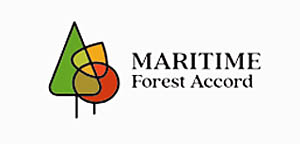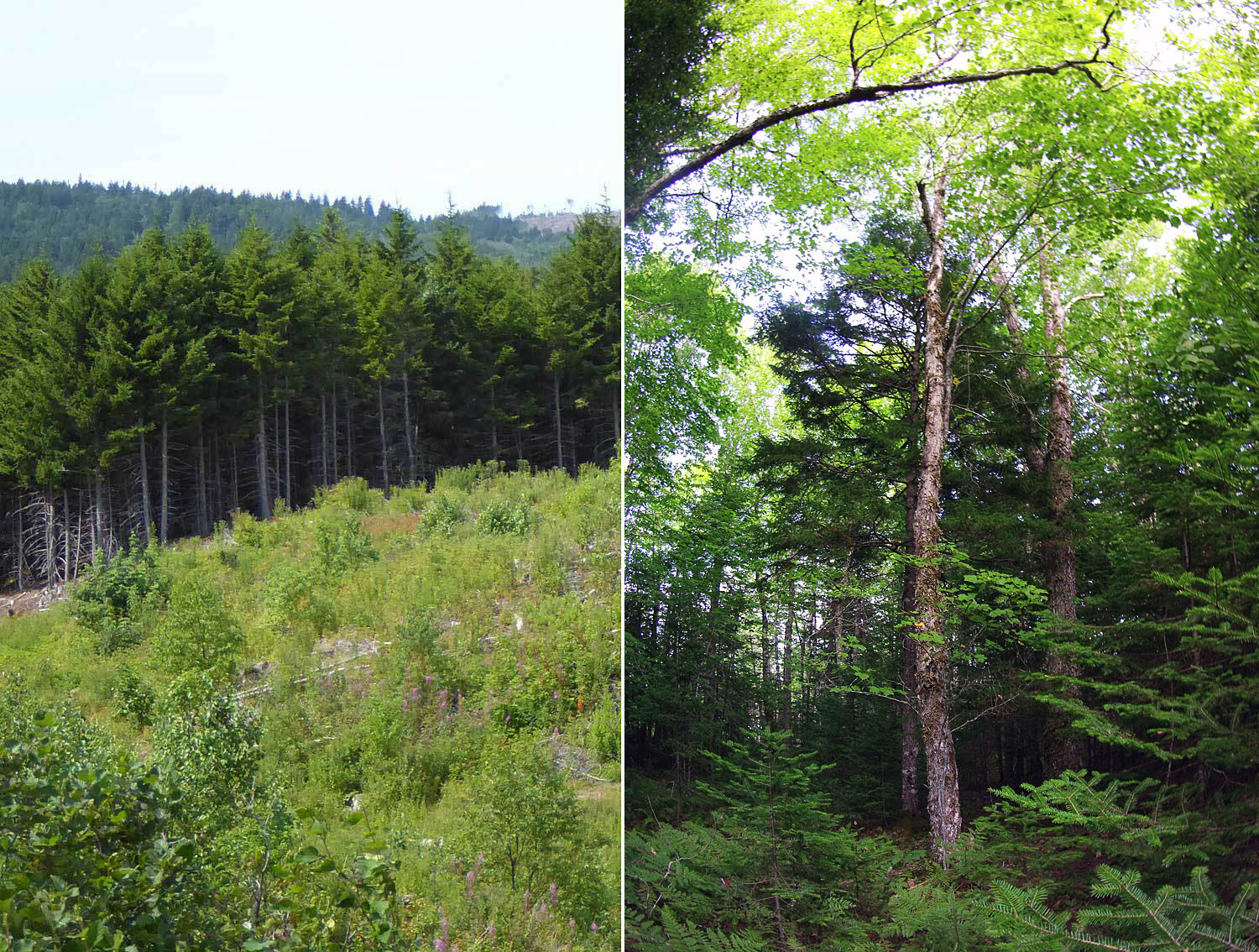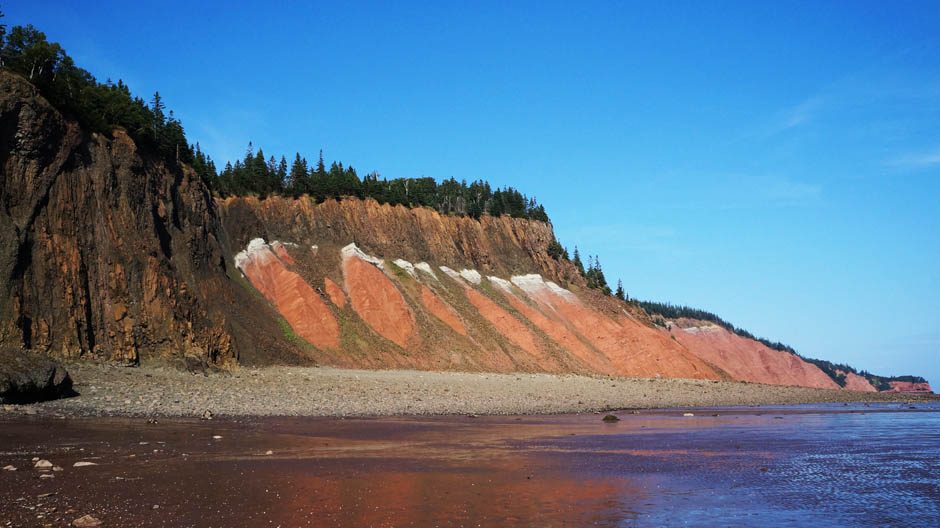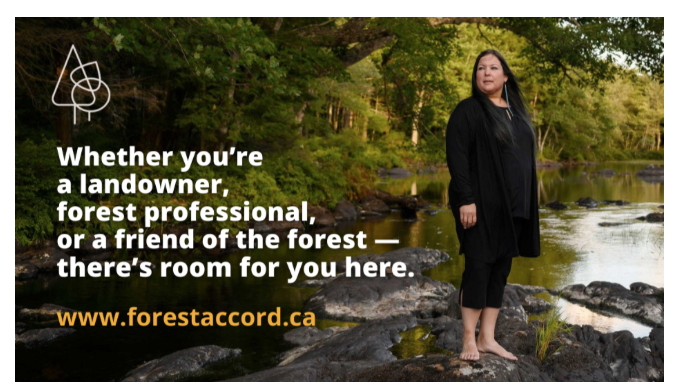It is an encouraging sign that we don’t have to wait for government to lead in these sorts of initiatives
 Received yesterday from Rebecca Jacobs, Digital Communications Coordinator for Community Forests International:
Received yesterday from Rebecca Jacobs, Digital Communications Coordinator for Community Forests International:
The Maritime Forest Accord is a movement and a hub for people to share approaches to forest care that put community and climate benefits first.
The idea behind the Accord emerged during a week-long event that brought together participants from Medway Community Forest Cooperative, Mi’kmawey Forestry, the University of New Brunswick, the Wolasteqey Nation in New Brunswick, and Community Forests International.
Together, we explored how we might help the Wabanaki forest flourish for future generations. Conversations gravitated toward the challenges encountered by small private landowners, who care deeply about their forests but often face challenges aligning their management decisions with their values, including a lack of reliable information.
In response, we created the Maritime Forest Accord, a website dedicated to uplifting the vibrant community of people committed to forest stewardship in this region. We hope this website serves as a central resource hub for people and groups who care about the special forest in this part of the world.
You’re invited to take a few minutes to explore, sign up for future updates, and add your vision to the growing Forest Accord!
Together, we can build a vibrant community of people committed to ecological and community-based forest stewardship in the Wabanaki-Maritime region.
Monica Allaby (cited as the registrant for www.forestaccoord.ca) provided the following comments:
This project is about helping people do what they already want to do. Family forest owners and the wider public at large already want to protect the Wabanaki forest, uphold intergenerational responsibility, and build deeper connections to the land. This project was designed to enable people to enact their forest values and align their actions with their ideals.
The seeds of this initiative were planted in 2019, when Community Forests International coordinated a social lab on forest stewardship in the Maritimes with NouLab. This was a great opportunity to recruit individuals from different organizations and groups for a dedicated week of creative problem-solving.
Together, we unpacked issues facing our forests and communities; we came up with solutions for those challenges; and then tested our best ideas with model users (that is, the people we were hoping to serve). The development of an accord, a set of principles related to forest use and care to which individuals could sign onto, was one of the impact pathways that emerged from this process.
To make the list of principles truly representative of a shared vision, we chose to launch the website without a predetermined list of principles. On the website, we are asking users to share their values and vision for the Wabanaki forest with us. There is a form on the bottom of most pages that we ask users to fill out. We have also secured funds to take this initiative offline through focus groups and other public engagement activities, which have been unfortunately delayed to date due to pandemic.
After extensive public consultation, we will release the list of principles and turn our attention to getting sign-on. We hope that sign-on will represent a deep commitment to forest stewardship and potentially, a tangible transition in how lands are cared for.
In the meantime, the website also functions as a resource and storytelling hub. We hope that this will reveal to users that they are already part of a vibrant community of people dedicated to careful forest stewardship in the Maritimes.
To complement this entire effort, Dr. Tom Beckley (UNB) secured a research grant to further investigate the values held by private landowners and the ecosystem of groups that support them.
Individuals who would like to get involved should sign-up for our email list to stay up to date with the initiative and submit their beliefs and aspirations through the website. We will be continuously updating the website with events, resources and other ways to get engaged.
The forestaccord.ca website provides other details and some initial resources.
Their FAQs (below) and the answers (not shown below) give a good indication of how they see the hub serving private landowners:
- Can I sell carbon offsets from my forest?
- How will climate change affect my forest?
- What are my options if my kids aren’t interested in the family forest?
- Who can help me create a management plan?
- How can I protect my woodlot from pests and diseases?
- How can I earn income without clearcutting?
Under resources are PDFs and links that provide “Everything you need, in one place”.
Under Services is directory of people/organizations that can assist in managing a woodlot and provide more info about ecological forestry
Under Get Involved, there is a Contact Us form – “Can’t find what you’re looking for? Get in touch today and we’ll get back to you as soon as possible” – and another form to “Add your voice and values to this movement!”.
So it’s all just getting hatched, but is surely welcome. Like CFI’s initiatives on Carbon Offsets, it is an encouraging sign that we don’t have to wait for government to lead in these sorts of initiatives.

Two approaches to forest management. LEFT: even aged management/short rotations. RIGHT: Selective harvesting on a family woodlot, high standing volume maintained. The latter but not the former would be eligible for carbon offset credits,
—-
Monica Allaby mentions the involvement of Dr. Tom Beckley at UNB. Here is a short bio:
Dr. Tom Beckley has been working in the field of forest sociology in Canada for over 17 years. He teaches in the Faculty of Forestry at UNB, though his Ph.D. is in Sociology and his Masters degree is in Rural Sociology (both from the University of Wisconsin-Madison (USA). Prior to joining UNB in 2000, he worked for the Canadian Forest Service in Alberta and New Brunswick. His research topics include; forest dependent communities, public participation in resource management and policy, criteria and indicators of sustainable development and community forestry. Tom is also a woodlot owner.
I note he is also the Director of Nature Trust New Brunswick. Dr. Beckely’s early involvement with the Forest Accord project is detailed in an (likely 2019) article in rural life.ca
I don’t know Tom Beckley personally, but I recognized the name as a co-author with Josh Noseworth of a recent paper that documents evidence for the “borealization” of Maritime forests by the settlers and their descendants. It’s a concept that at least some government foresters in the Maritimes are still having difficulties acknowledging or even, apparently, mentioning.
The involvement in the Maritime Forest Accord of Community Forests International, Dr. Beckey and the others cited above vouch for its credibility.
Ultimately, it will be the participation of many of the people they are appealing to – “people committed to forest stewardship in this region” – that will bring it all to fruition.

